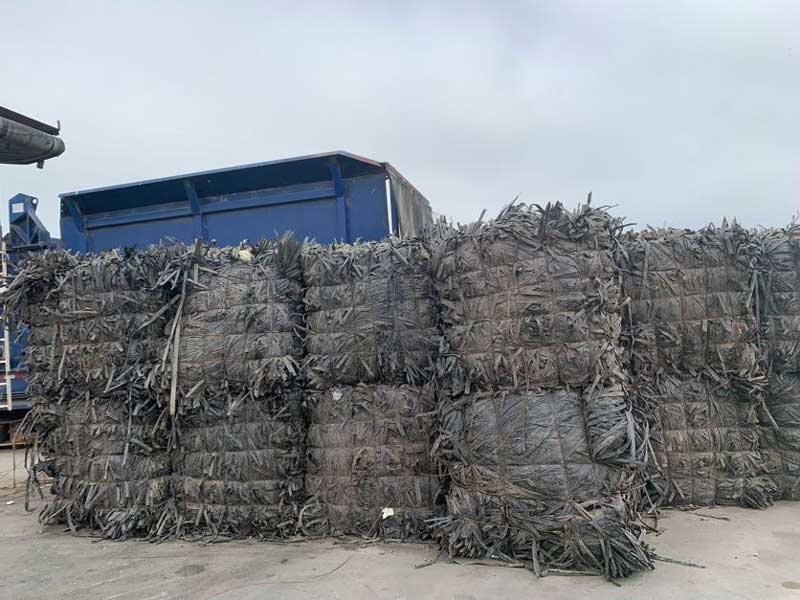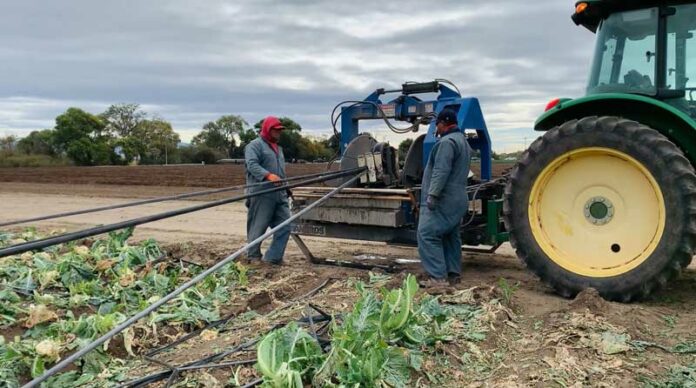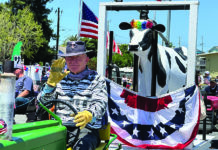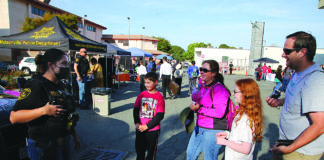A new program launched by the California Marine Sanctuary Foundation (CMSF), ReGen Monterey and Flipping Iron, Inc. is joining a growing effort to recycle more plastic from local farms and ranches.
CMSF, an organization aiming to protect California’s coastal ecosystems and communities, conducted an assessment in 2020 that looked at agricultural plastic use across Monterey Bay. Agricultural plastic was identified as a land-to-sea source.
CMSF Water Quality Program coordinator Jazmine Mejia-Muñoz said they understood the benefits of agricultural plastic for growers, and wanted to help people find solutions that could benefit everyone while protecting the environment.
“We wanted to find end-of-life solutions for these plastics,” she said. “One of the plastics we saw that had a pretty obvious solution was drip tape, as well as hoop house plastic. This is compared to other kinds which are much harder to recycle due to contamination.”
A number of other agricultural plastic recycling programs have popped up in the last few years. This includes programs by companies such as Andros, Netafim, RDO Water and Rivulis.
Each program is unique, taking different items in various conditions and amounts. There are also different accessibility requirements and methods to roll and bundle the plastic.
“There are many opportunities out there,” Mejia-Muñoz said. “One size does not fit all, and all these programs are subject to change.”
CMSF joined the agricultural plastic recycling movement with help from ReGen Monterey, formerly the Monterey Peninsula Garbage and Refuse Disposal District, and Flipping Iron, a Bakersfield-based supplier that rents and recycles agricultural equipment.
Approved growers may drop off separated and cleaned drip tape and hoop house plastic at ReGen Monterey. Currently, the program is waiving all tipping fees, at least through November and December. As it is still in the pilot stage, the program does not yet have a future set cost.
However, the program is independent and not funded through grants—which is helpful in keeping it sustainable, Mejia-Muñoz said.

ReGen’s new program does not have a minimum or maximum delivery amount, however, they are working on a case-by-case basis. To be approved, you must contact Flipping Iron, Inc. at 661-426-1126 or in**@*********on.com.
Agricultural plastic recycling is slowly growing industry-wide, Mejia-Muñoz said, with much of the progress being made in California.
“We didn’t have these programs in place until a couple years ago,” she said. “There has been a big effort behind-the-scenes. California is lucky, because these programs are very regional. They are not yet offered widely across the U.S.”
Mejia-Muñoz said that so far, the agricultural community has been very supportive of the program and others like it.
“They are very involved,” she said. “They don’t want all this plastic either, and they know [recycling] is beneficial. It’s a win-win for everyone.”














That’s a lot of plastic. That will keep tons of micro plastics out of Monterey Bay. Very smart. Now we need more organic farms if possible.
This is long overdue now bring back plastic straws, bags and cups! Which is a minuscule contribution to pollution at best.